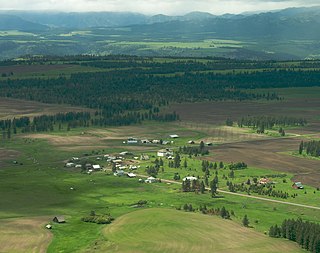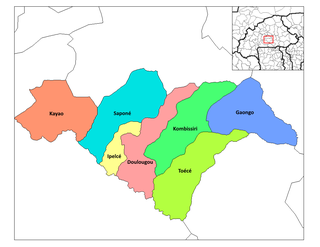
Cape Town is the oldest city in South Africa, colloquially named the Mother City. It is the legislative capital of South Africa and primate city of the Western Cape province. It forms part of the City of Cape Town metropolitan municipality.

Luton Town Football Club is a professional association football club based in the town of Luton, Bedfordshire, England, that competes in League One, the third tier of the English football league system. Founded in 1885, it is nicknamed "the Hatters" and affiliated to the Bedfordshire County Football Association. The team plays its home matches at Kenilworth Road, where it has been based since 1905. The club's history includes major trophy wins, several financial crises, numerous promotions and relegations, and some spells of sustained success. It was perhaps most prominent between 1982 and 1992, when it was a member of English football's top division, at that time the First Division; the team won its only major honour, the Football League Cup, in 1988.

A ghost town is an abandoned village, town, or city, usually one that contains substantial visible remains. A town often becomes a ghost town because the economic activity that supported it has failed, or due to natural or human-caused disasters such as floods, prolonged droughts, government actions, uncontrolled lawlessness, war, pollution, or nuclear disasters. The term can sometimes refer to cities, towns, and neighbourhoods that are still populated, but significantly less so than in past years; for example, those affected by high levels of unemployment and dereliction.
A county seat is an administrative center, seat of government, or capital city of a county or civil parish. The term is used in Canada, China, Romania, Taiwan and the United States. County towns have a similar function in the United Kingdom and Republic of Ireland, and historically in Jamaica.

A town is a human settlement. Towns are generally larger than villages but smaller than cities, though the criteria to distinguish them vary considerably between different parts of the world.

A village is a clustered human settlement or community, larger than a hamlet but smaller than a town, with a population ranging from a few hundred to a few thousand. Though villages are often located in rural areas, the term urban village is also applied to certain urban neighborhoods. Villages are normally permanent, with fixed dwellings; however, transient villages can occur. Further, the dwellings of a village are fairly close to one another, not scattered broadly over the landscape, as a dispersed settlement.

Stratford-upon-Avon, commonly known as just Stratford, is a market town and civil parish in the Stratford-on-Avon District, in the county of Warwickshire, England, on the River Avon, 91 miles (146 km) north west of London, 22 miles (35 km) south east of Birmingham, and 8 miles (13 km) south west of Warwick. The estimated population in 2007 was 25,505, increasing to 27,445 at the 2011 Census.

Northampton is the county town of Northamptonshire in the East Midlands of England. It lies on the River Nene, about 67 miles (108 km) north-west of London and 54 miles (87 km) south-east of Birmingham. It is one of the largest towns in the UK. Northampton had a population of 212,100 in the 2011 census.

Ipswich is a large historical town in Suffolk, England, located in East Anglia about 66 miles (106 km) north east of London. It is also the county town of Suffolk. The town has been continuously occupied since the Saxon period, and its port has been one of England's most important for the whole of its history.

Huddersfield Town Association Football Club is a professional football club in Huddersfield, West Yorkshire, England, which competes in the Premier League, the top tier of English football.

Ipswich Town Football Club is a professional association football club based in Ipswich, Suffolk, England. They play in the Championship, the second tier of the English football league system, having last appeared in the Premier League in the 2001–02 season.

In local government, a city hall, town hall, civic centre, a guildhall, a Rathaus (German), or a municipal building, is the chief administrative building of a city, town, or other municipality. It usually houses the city or town council, its associated departments, and their employees. It also usually functions as the base of the mayor of a city, town, borough, or county/shire.

The administrative divisions of New York are the various units of government that provide local government services in the state of New York.

The English Football League Two is the third and lowest division of the English Football League (EFL) and fourth-highest division overall in the English football league system.
A post town is a required part of all postal addresses in the United Kingdom, and a basic unit of the postal delivery system. Including the correct post town in the address increases the chance of a letter or parcel being delivered on time. Post towns in general originated as the location of delivery offices. As of 2004, their main function is to distinguish between locality or street names in addresses not including a postcode.

Sister cities or twin towns are a form of legal or social agreement between towns, cities, counties, oblasts, prefectures, provinces, regions, states, and even countries in geographically and politically distinct areas to promote cultural and commercial ties. The modern concept of town twinning, conceived after the Second World War in 1947, was intended to foster friendship and understanding among different cultures and between former foes as an act of peace and reconciliation, and to encourage trade and tourism. By the 2000s, town twinning became increasingly used to form strategic international business links among member cities.

LazyTown is an English-language Icelandic children's educational musical action comedy program made by an international crew and performed by a cast from Iceland, the United States and the United Kingdom. It is based upon a children's book from 1995 titled Áfram Latibær! and was created by Magnús Scheving, an aerobics champion who also plays the character Sportacus.

In geography, statistics and archaeology, a settlement, locality or populated place is a community in which people live. The complexity of a settlement can range from a small number of dwellings grouped together to the largest of cities with surrounding urbanized areas. Settlements may include hamlets, villages, towns and cities. A settlement may have known historical properties such as the date or era in which it was first settled, or first settled by particular people.
In the United States, the meaning of "village" varies by geographic area and legal jurisdiction. In many areas, "village" is a term, sometimes informal, for a type of administrative division at the local government level. Since the Tenth Amendment to the United States Constitution prohibits the federal government from legislating on local government, the states are free to have political subdivisions called "villages" or not to and to define the word in many ways. Typically, a village is a type of municipality, although it can also be a special district or an unincorporated area. It may or may not be recognized for governmental purposes.

A commuter town is a populated area with residents who normally work elsewhere, but in which they live, eat and sleep. The term additionally implies a community that has little commercial or industrial activity beyond a small amount of locally oriented retail business.




















